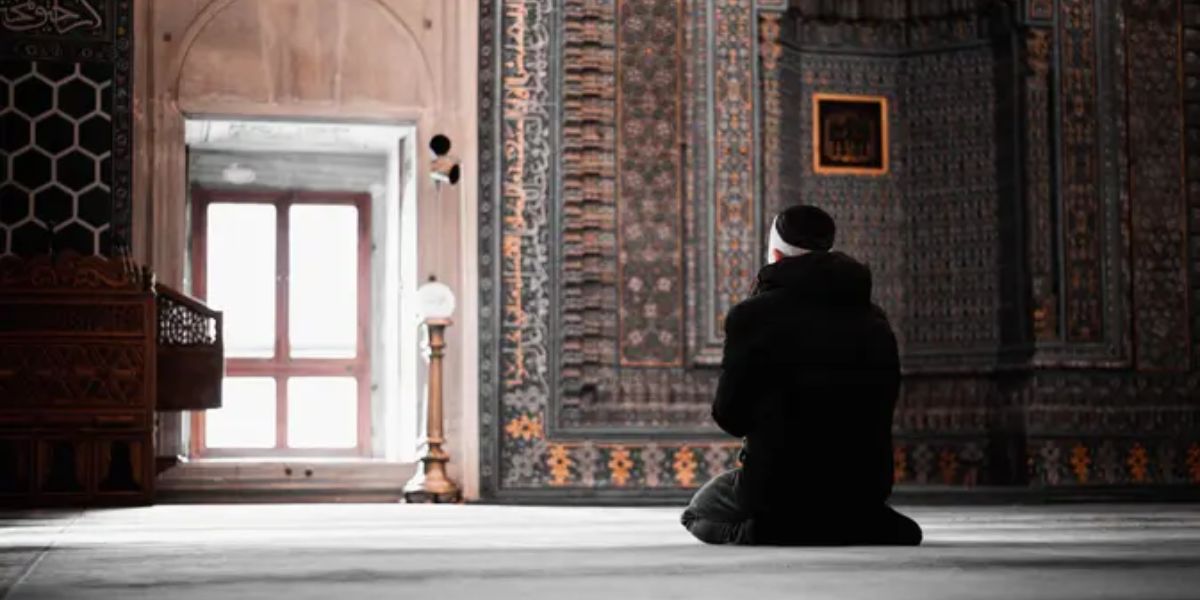Kapanlagi.com - I'tikaf, a worship that has deep meaning in Islam, always attracts the attention of many people. However, one question that often arises is: Should i'tikaf be performed in a mosque? The answer is clear: yes! Based on the words of Allah SWT in Surah Al-Baqarah verse 187, i'tikaf must indeed be carried out in a mosque.
Although scholars have various opinions regarding the types of mosques that are permitted, there is a general consensus that i'tikaf is only valid when performed in a mosque, not in a home or other places. Some scholars argue that a mosque with an imam and muadzin can still be a place for i'tikaf, even if it is not always used for the five daily prayers. However, the broader accepted view is that i'tikaf should ideally be performed in a mosque that is regularly used for congregational prayers.
The entire area of the mosque, including the porch and terrace, is allowed to be used as a place for i'tikaf. However, performing i'tikaf in a private prayer room at home is not valid. If i'tikaf is performed due to a nadzar (vow), then it becomes obligatory and the duration must be in accordance with what was vowed.
There is also a debate regarding the types of mosques that can be used for i'tikaf, whether it is only the jami' mosque (main mosque) or other mosques. However, choosing the jami' mosque as the primary location for i'tikaf is certainly more recommended. Thus, i'tikaf becomes a valuable opportunity to draw closer to Allah in a place full of blessings.
1. The Meaning of I'tikaf and Its Designation
In terms of terminology, i'tikaf is the act of staying in the mosque with the intention of worshiping Allah. The main goal is to spiritually draw closer to Allah, distance oneself from worldly distractions, and increase acts of worship such as reading the Qur'an, dhikr, and contemplation.
According to the majority of scholars, the place for i'tikaf is only valid if it is performed in a mosque. This is emphasized in QS. Al-Baqarah verse 187 and reinforced by the narration that the Prophet Muhammad SAW always performed i'tikaf in the mosque.
All scholars agree that the place for i'tikaf or al-mu'takaf fihi, is the mosque. Buildings other than mosques are not valid for i'tikaf.
Opinions of the Four Schools of Thought on the Location of I'tikaf
Although they agree that it must be in a mosque, the four schools have slight differences in the criteria for a mosque that is valid for i'tikaf:
The Shafi'i and Maliki schools allow i'tikaf in any mosque, as long as it is classified as a mosque even if there is no regular congregation for the five daily prayers.
The Hanafi and Hanbali schools are stricter: only the jami' mosque (the place for congregational prayers) is valid for i'tikaf. According to Abu Yusuf, if i'tikaf is obligatory due to a nadzar, it must be performed in a congregational mosque; but for sunnah, it can be in a regular mosque.
Special mosques such as Masjidil Haram, Masjid Nabawi, and Masjid Al-Aqsa certainly have a higher virtue compared to other mosques, as also stated by classical scholars.
2. Pillars and Conditions of I'tikaf
The pillars of i'tikaf consist of several important elements, namely:
- Intention: Having a sincere intention to worship Allah SWT.
- Staying in the mosque: Residing in the mosque for the specified time.
- Status as a Muslim: Only a person who is a valid Muslim can perform i'tikaf.
- Purity from major impurities: A person who is in a state of major impurity, menstruation, or postpartum bleeding is not allowed to perform i'tikaf.
Women who are menstruating or experiencing postpartum bleeding are not permitted to perform i'tikaf. Some actions that invalidate i'tikaf include leaving the mosque without a justified reason, apostasy, loss of sanity, menstruation or postpartum bleeding, and sexual intercourse.
3. Preparation for Performing I'tikaf
Before stepping into the silence of i'tikaf, thorough preparation is key to achieving a profound spiritual experience.
- Purify Your Intention: Ensure that your intention for i'tikaf is pure for the sake of Allah SWT.
- Choose the Right Mosque: Select a mosque that is commonly used for congregational prayers.
- Prepare Your Needs: Get ready with clothing, food, and necessary worship supplies.
- Ask for Permission: If you are married, seek permission from your husband before performing i'tikaf.
After preparing all the above, enter the mosque with your right foot while reciting the prayer for entering the mosque. State your intention for i'tikaf in your heart and find a comfortable spot to worship.
The Virtues of I'tikaf
I'tikaf has many virtues, especially when performed during the last 10 days of Ramadan. During this time, one can focus more on worship and draw closer to Allah SWT. By staying in the mosque, one can be more devoted in worship and minimize distractions from outside that may disrupt concentration in worship.
4. Can Women Perform I'tikaf in the Mosque?
Women now have the opportunity to perform i'tikaf in the mosque, as long as they obtain permission from a guardian or husband and do not cause fitnah. Of course, they must still meet the general requirements for i'tikaf, such as being in a state of purity from menstruation and postpartum bleeding.
Although some argue that i'tikaf at home can be an alternative, the majority of scholars agree that this practice does not meet the shari'ah requirements. Therefore, for women who wish to perform i'tikaf in accordance with shari'ah, the mosque is the appropriate place, as long as the situation and safety support it.
5. Common Questions About I'tikaf
1. Can i'tikaf be done at home?
The majority of scholars believe that i'tikaf should be performed in the mosque. However, in emergency situations, some scholars permit i'tikaf in a home prayer room.
The requirements for i'tikaf include: being Muslim, of sound mind, mature, free from major impurity, and performed in the mosque.
Yes, women can perform i'tikaf under the same conditions as men, which means it must be in the mosque and in a state of purity.
4. What can nullify i'tikaf?
Several things can nullify i'tikaf, including leaving the mosque without a valid excuse, engaging in marital relations, and losing one's sanity.
(kpl/mni)
Disclaimer: This translation from Bahasa Indonesia to English has been generated by Artificial Intelligence.












